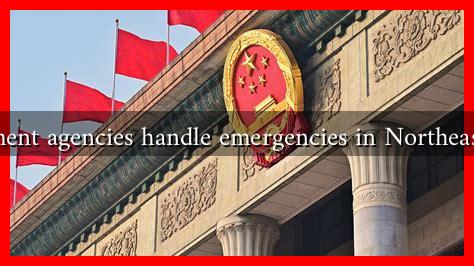-
Table of Contents
What Government Agencies Handle Emergencies in Northeast Ohio Today?
Northeast Ohio, a region known for its diverse communities and rich industrial history, faces a variety of emergencies ranging from natural disasters to public health crises. To effectively manage these situations, several government agencies play crucial roles in emergency preparedness, response, and recovery. This article explores the key agencies involved in handling emergencies in Northeast Ohio, their functions, and how they collaborate to ensure public safety.
Key Emergency Management Agencies
In Northeast Ohio, various agencies at the local, state, and federal levels work together to manage emergencies. Here are some of the primary organizations involved:
- Cuyahoga County Office of Emergency Management (CCOEM): This office coordinates emergency preparedness and response efforts across Cuyahoga County, which includes Cleveland and its suburbs. CCOEM develops emergency plans, conducts training exercises, and collaborates with local agencies to ensure a unified response during crises.
- Ohio Emergency Management Agency (Ohio EMA): As the state-level agency, Ohio EMA provides support to local governments in disaster response and recovery.
. They offer resources, training, and funding to enhance local emergency management capabilities.
- Federal Emergency Management Agency (FEMA): FEMA plays a vital role in disaster response at the national level. In Northeast Ohio, FEMA provides assistance during major disasters, including financial aid for recovery efforts and resources for local agencies.
- Local Fire Departments and Police Departments: These first responders are often the first on the scene during emergencies. They are trained to handle a variety of situations, from fires and medical emergencies to natural disasters.
- Public Health Departments: Local health departments, such as the Cuyahoga County Board of Health, are essential during public health emergencies, including disease outbreaks and environmental hazards. They provide information, resources, and support for community health initiatives.
Collaboration and Coordination
Effective emergency management relies on collaboration among various agencies. In Northeast Ohio, this is achieved through:
- Joint Training Exercises: Agencies regularly participate in joint training exercises to simulate emergency scenarios. These exercises help improve communication and coordination among different organizations.
- Emergency Operations Centers (EOCs): During a crisis, EOCs are activated to facilitate communication and resource allocation among agencies. For example, during severe weather events, EOCs coordinate responses to ensure public safety.
- Community Engagement: Agencies work with community organizations to educate residents about emergency preparedness. Programs like the Community Emergency Response Team (CERT) train citizens to assist during emergencies.
Case Studies: Recent Emergencies in Northeast Ohio
Understanding how these agencies operate can be illustrated through recent emergencies in the region:
- 2020 COVID-19 Pandemic: The Cuyahoga County Board of Health played a pivotal role in managing the public health crisis. They provided testing, contact tracing, and vaccination efforts, collaborating with Ohio EMA and FEMA for resources and support.
- Severe Weather Events: In 2021, Northeast Ohio experienced significant flooding. The CCOEM coordinated with local fire departments and the Ohio EMA to respond quickly, providing resources and support to affected communities.
Statistics on Emergency Preparedness
Statistics highlight the importance of emergency management in Northeast Ohio:
- According to the Ohio EMA, over 80% of local emergency management agencies in Ohio have participated in joint training exercises in the past year.
- FEMA reported that in 2022, Northeast Ohio received over $5 million in federal disaster assistance for various emergencies.
Conclusion
In conclusion, the effective management of emergencies in Northeast Ohio is a collaborative effort involving multiple government agencies. From local fire departments to state and federal organizations, each plays a vital role in ensuring public safety and preparedness. By working together, these agencies can respond more effectively to emergencies, ultimately protecting the health and well-being of the community. As residents, staying informed and engaged with these agencies can enhance individual and community preparedness for future emergencies.
For more information on emergency preparedness, visit the Ready.gov website.





